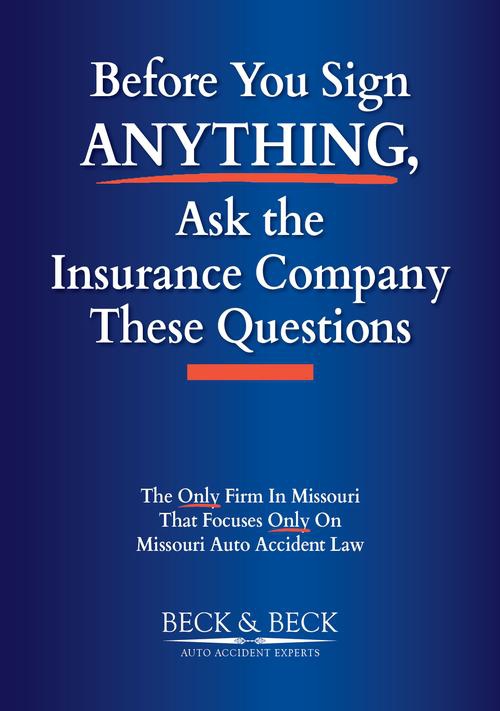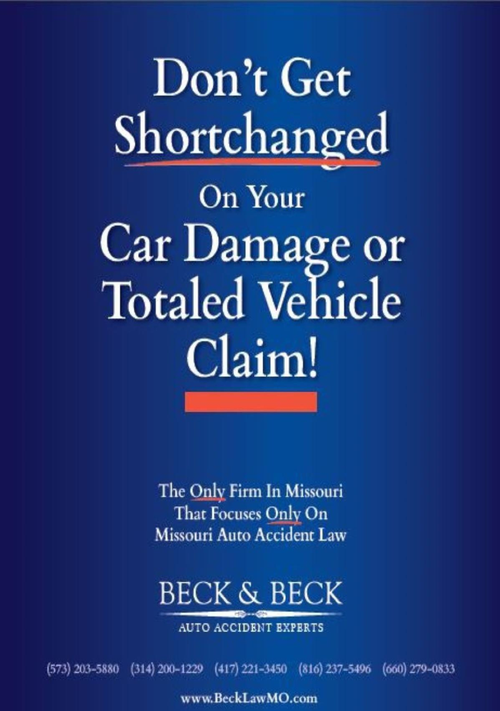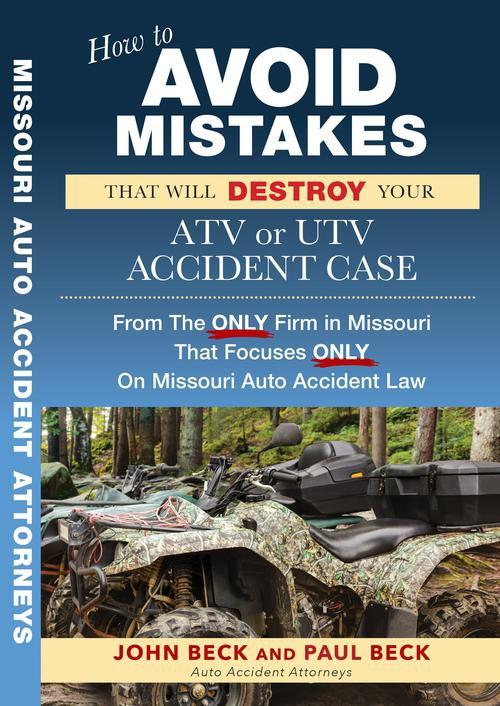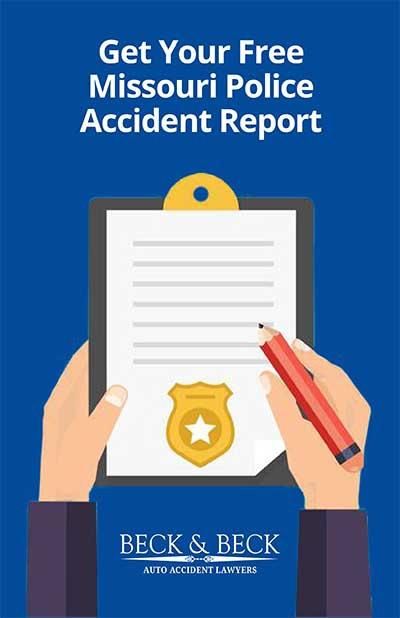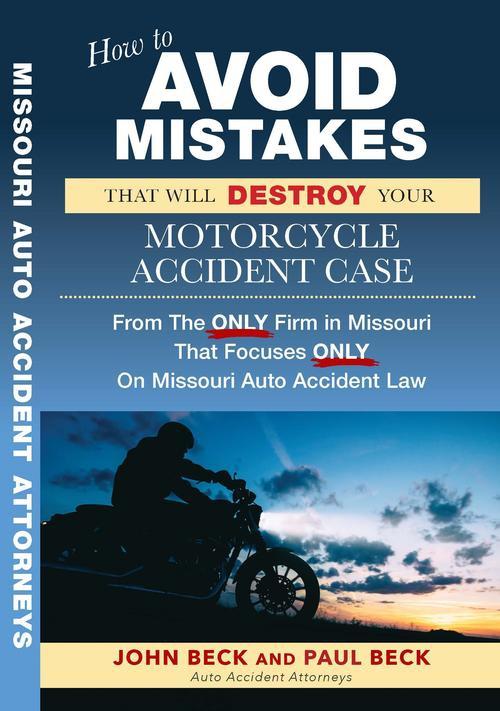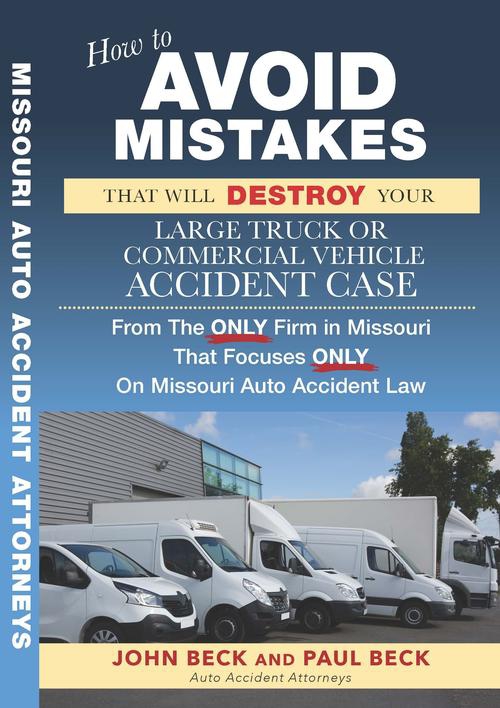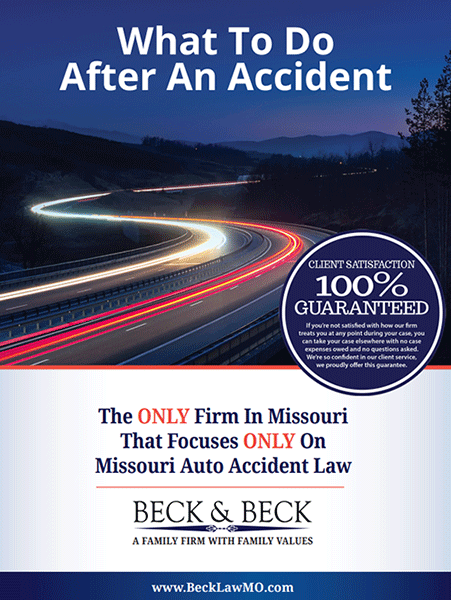Car accidents are always unexpected, but when they involve company vehicles, the situation can become even more complicated. If you’ve been involved in a company car accident in Missouri, the question of liability is not always straightforward.
Typically, the driver responsible for the accident is liable for the damages, but when a company vehicle is involved, the issue of who is responsible for compensating the injured party becomes more complex. For instance, if you’re injured in an accident caused by a driver in a company car, determining whether the company or the driver is liable for your injuries or property damage can be challenging.
Understanding how these cases work and what steps to take is crucial. At Beck & Beck Missouri Car Accident Lawyers, our company vehicle accident attorneys are committed to helping individuals navigate the complexities of company car accidents in Missouri and ensuring they receive the compensation they deserve.
How Do Company Car Accidents Differ From Non Work-Related Car Accidents?
Company car accidents in Missouri are distinct from non-work-related car accidents due to the involvement of both the employee and their employer, as well as the nature of the employee’s actions at the time of the crash. In typical car accidents that occur outside of work hours, the driver is personally responsible for their actions, and their insurance generally covers the damages.
However, when a company car accident in Missouri occurs, the situation becomes more complex, especially if the employee was acting within the scope of their employment at the time of the accident.
In cases involving a company vehicle, the employer may be held liable for the accident under the legal doctrine of vicarious liability. This doctrine holds employers accountable for the negligent actions of their employees when they are performing job-related duties.
For instance, if an employee is driving a company vehicle to visit a client and causes an accident, the employer may be financially responsible for the damages. This is a key difference from non-work-related accidents, where the individual driver is typically the sole party responsible for compensation.
Additionally, company car accidents in Missouri may offer injured victims different options for pursuing compensation, including workers’ compensation. However, it’s important to note that workers’ compensation insurance may not cover all the costs associated with the accident, such as lost wages or property damage.
This highlights the need for a thorough understanding of the legal options available. A skilled attorney can help victims navigate these complexities and pursue all possible avenues for compensation, whether through workers’ compensation, a car accident lawsuit, or both.
If an Employee Gets in an Accident, Can the Employer be Held Liable?
When it comes to company car accidents in Missouri, determining who is responsible for the damage can depend on several factors, such as the specifics of the accident, the type of damage, and the employer’s insurance policy. Generally, if the other driver is at fault, they should be held responsible for paying damages.
However, if the employee driving the company vehicle is at fault, it comes down to the employer’s insurance policy and the circumstances surrounding the accident.
In Missouri, liability in company car accidents is typically divided into three main categories: employer responsibility, employee responsibility, and vicarious liability. Here’s an overview of how each category applies:
Employer Responsibility
If the employer’s insurance policy covers the company vehicle, the employer will generally be responsible for paying for the damages. However, the employer’s liability depends on the employee’s actions at the time of the accident.
If the employee was driving the company car in accordance with their job duties and not engaging in reckless or personal activities, the employer is more likely to be held accountable for the damages. On the other hand, if the employee was acting outside the scope of their employment (e.g., running personal errands), the employer might not be liable.
Some smaller businesses may not have the same level of insurance coverage as larger companies with multiple vehicles, which can complicate the situation. In these cases, employees might be expected to cover certain costs, especially if the employer doesn’t have sufficient insurance coverage.
Employee Responsibility
In certain situations, businesses may hold employees personally liable for accidents involving company cars. This can happen if the employee was negligent or otherwise responsible for the collision. In this case, the employee’s personal insurance may be used to cover the costs, and they may also need to address any claims filed by third parties involved in the accident.
Employers may cover the upfront costs and seek reimbursement from the employee or instruct them to file a claim with their own insurer. It’s essential to understand the terms of your employer’s insurance policy and your own coverage to avoid any surprises after an accident.
Vicarious Liability
Vicarious liability is the most common form of liability in company car accidents in Missouri. Under this principle, the employer is held responsible for the actions of an employee who is driving a company vehicle, as long as the employee was performing their job duties at the time of the accident. For example, if the employee was on a work-related trip and caused a crash, the employer would likely be liable.
However, vicarious liability may not apply if the employee was engaging in reckless behavior or driving under the influence at the time of the accident. Employers are only liable when the employee is acting within the scope of their job duties.
What Is Negligent Entrustment in Missouri?
In some cases, negligent entrustment may play a role in determining liability for company car accidents in Missouri. This concept occurs when an employer allows an unqualified or reckless employee to drive a company vehicle. If the employer knew that the employee had a history of unsafe driving, but still entrusted them with a company vehicle, the employer may be held responsible for the accident under the theory of negligent entrustment.
To prove negligent entrustment, the injured party must show that:
- The driver was unfit, inexperienced, or reckless.
- The employer knew or should have known about the driver’s inability to safely operate the vehicle.
- The employer gave explicit permission for the driver to operate the vehicle.
- The driver’s actions put others at risk of harm.
- The victim’s injuries were caused by the driver’s negligence.
Understanding the potential for negligent entrustment can help victims of company car accidents in Missouri hold the responsible parties accountable for their injuries and damages. If you’ve been involved in an accident, consulting with an experienced attorney can ensure that you explore all available legal options.
What Does “Acting in the Scope of Employment” Mean?
In company car accidents in Missouri, determining whether the driver was acting within the scope of their employment is key to understanding liability. Whether you were on a business errand, commuting to or from work, or using the company vehicle for personal reasons, each scenario can impact who is responsible for the damages.
Running Business Errands in Your Personal Car
Suppose your employer asks you to run a business errand, like delivering packages to the post office, and you are involved in an accident while doing so. In this case, you are likely acting within the scope of employment because the task benefits your employer. As you are performing a business-related duty, your employer could be held liable for the accident.
However, if you finish the errand, stop for dinner, and are on your way home when the accident occurs, this situation changes. Since you were no longer performing a task for your employer after the errand was completed, you are considered off the job, and the employer would not be liable for the crash.
Accidents on Company Property or While Traveling for Work
What if you’re driving a company vehicle or using your own car for business purposes and back into another car in a parking lot or have an accident on the way to a meeting? In these instances, your personal insurance would likely cover the damages, as these accidents are often considered personal, especially if they occur while you’re not engaged in work-related tasks.
However, if your accident happened while inspecting a job site, picking up supplies, or performing other business-related activities, your employer may be held liable if you were negligent in causing the crash. This could include situations where you were acting within the course of your duties but made a mistake while on the job.
What Happens if You Make Personal Stops While on Business?
Things become more complicated when you make personal stops during a business trip. For example, if you stop to pick up dry cleaning or run another personal errand during a business trip, it could be harder to determine who is liable if an accident occurs.
The answer depends on whether the personal errand interrupted your business task, and the situation may require investigation by insurers or personal injury lawyers to determine liability. In some cases, it might even involve a trial to settle the matter.
Insurance Coverage for Employer and Employee
Whether you’re driving your own car or a company vehicle for business purposes, insurance coverage can be tricky. Many personal auto insurance policies do not cover accidents that occur while using your car for business, with the exception of the “livery” exclusion (e.g., using a vehicle to transport goods or passengers for money). If your employer requires you to use your vehicle for work-related tasks, they may provide coverage, but it’s not always automatic.
Before agreeing to drive your car for work, it’s important to confirm with your employer whether they have insurance coverage for such situations. Understanding your coverage is crucial to avoid financial liability in the event of a company car accident in Missouri.
What Happens If The Employee Was Using a Work Vehicle For Personal Errands?
When an employee uses a company vehicle for personal errands and is involved in an accident, the question of liability becomes more complex. Generally, employers are not held responsible for accidents that happen while an employee is driving for personal reasons, even if the vehicle is owned by the company.
However, the situation changes if the employer has granted permission for personal use of the company vehicle without setting clear guidelines or properly monitoring its use. In such cases, the employer could still be held liable, especially if their lack of supervision contributed to the accident.
It’s essential to evaluate whether the employee had explicit permission to use the vehicle for personal errands and whether the employer’s negligence in overseeing this use played a role in the crash.
In the context of company car accidents in Missouri, if an employee was running a personal errand, such as picking up lunch or going to a doctor’s appointment, the employer is typically not liable. Additionally, under the “coming and going” rule, commuting to and from work is generally not considered part of work-related duties.
However, an exception exists if the employee performs an errand on the way home from work that was requested by the employer and gets into an accident while completing the task. In that case, the employer may be held responsible. But once the errand is completed and the employee is heading home, the employer’s liability usually ends.
Understanding these nuances is critical, and if you are involved in a company car accident in Missouri, it’s important to consult with a qualified attorney to explore your options.
Employers Are Required to Conduct Due Diligence
In Missouri, employers have a critical responsibility to conduct due diligence when hiring and supervising employees who will be operating company vehicles. This duty includes thoroughly vetting employees before permitting them to drive company cars, ensuring that the vehicles are well-maintained and safe, and providing proper training on safe driving practices.
If an employer fails to meet these obligations and an employee causes an accident while driving a company vehicle, the employer may be held liable for any resulting injuries or damages. For instance, if an employer hires a driver without verifying their driving history or confirming that they hold a valid driver’s license, the employer could be responsible if that driver causes a company car accident in Missouri.
Additionally, employers are expected to provide training on safe vehicle operation, particularly if the employee is driving a specialized vehicle for work purposes. Failing to provide adequate training or oversight could lead to serious accidents, and the employer may be held accountable.
If you’ve been injured in a company car accident in Missouri and suspect the employer did not perform due diligence, it is crucial to consult with a qualified attorney who can help assess the situation and determine your best path to seek compensation.
What Happens if I Get in a Crash in a Government Owned Work-Vehicle?
When you’re involved in a company car accident in Missouri, the process for seeking compensation typically involves filing a claim with the at-fault driver’s insurance. However, if the other driver is a government employee operating a government-owned vehicle, the situation becomes more complicated due to the legal principle known as sovereign immunity.
Under the doctrine of sovereign immunity, government entities, including state and local agencies, are generally protected from lawsuits for injuries caused by their employees while performing their official duties. This means that if you’re injured in a collision involving a government vehicle, you may face significant challenges in pursuing compensation.
The Missouri Torts Claims Act
Fortunately, the Missouri Torts Claims Act provides an important exception to sovereign immunity. This law allows individuals who are injured in automobile accidents involving government vehicles to file a lawsuit against the state or local government entity, provided the circumstances meet certain requirements.
Skilled Missouri Company Vehicle Accident Lawyers
At Beck & Beck Missouri Car Accident Lawyers, we are committed to providing compassionate, skilled legal representation to those injured in company car accidents in Missouri. Our team understands the complexities of car accident cases and is dedicated to helping you navigate the legal process while fighting for the compensation you deserve.
If you’ve been involved in an accident, don’t hesitate to reach out to our experienced Missouri auto accident attorneys for a free consultation. Some of the cities our legal team has helped residents in includes St. Louis, Florissant, Springfield, Kirksville, Cape Girardeau, and much more.

